RESISTANCE CINEMA Presents “THE WAR YOU DON’T SEE” a Dartmouth Film Production, written, directed, and produced by John Pilger and Alan Lowery, narrated by John Pilger (2010, 97 minutes)
WHEN: Sunday October 9, 2011 1:15 PM
WHERE: Community Church NY Gallery Room, 28 East 35th st. btwn Park & Madison Aves.
ADMISSION: Free, donations appreciated
“This film is about the war you don’t see………The film will ask what is the role of the media in rapacious wars like Iraq and Afghanistan? Why do many journalists beat the drums of war regardless of the lies of governments? And how are the crimes of war reported and justified when they’re our crimes?” – John Pilger
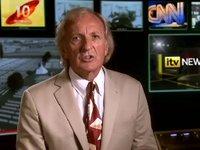 One of the more curious ironies recently is that a film entitled “The War You Don’t See” almost became “The Film We Won’t Let You See”. In June of 2011 filmmaker John Pilger was invited by the Lannan Foundation to be present at the American premiere of his new film examining the role of the media in its coverage of war. Suddenly, just two days before the event, which was to be held in Santa Fe New Mexico, Pilger was informed with little explanation that the screening had been cancelled and that he was not to come.
One of the more curious ironies recently is that a film entitled “The War You Don’t See” almost became “The Film We Won’t Let You See”. In June of 2011 filmmaker John Pilger was invited by the Lannan Foundation to be present at the American premiere of his new film examining the role of the media in its coverage of war. Suddenly, just two days before the event, which was to be held in Santa Fe New Mexico, Pilger was informed with little explanation that the screening had been cancelled and that he was not to come.
Censored? Banned? Could this be happening at a normally “progressive”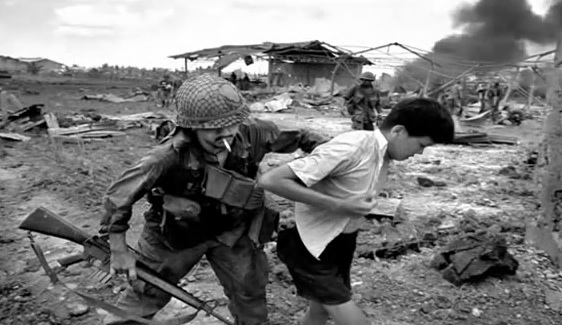 institution? While no full explanation has ever been given one can’t help but speculate that since Pilger’s politics are certainly well known and harsh criticism for the media’s coverage of the wars in Iraq and Afghanistan is not new, something else must have triggered this unprecedented reaction. Could it be that Pilger not only gives the whistle blowing group Wikileaks quite sympathetic treatment in his film but also includes segments from an exclusive extended
institution? While no full explanation has ever been given one can’t help but speculate that since Pilger’s politics are certainly well known and harsh criticism for the media’s coverage of the wars in Iraq and Afghanistan is not new, something else must have triggered this unprecedented reaction. Could it be that Pilger not only gives the whistle blowing group Wikileaks quite sympathetic treatment in his film but also includes segments from an exclusive extended 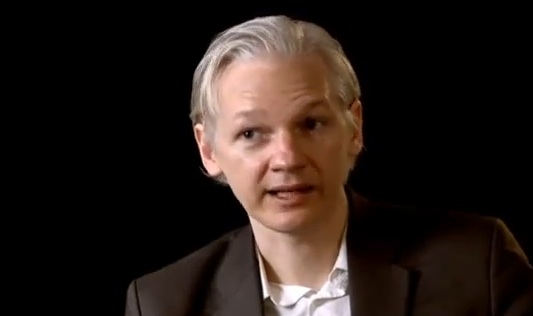 interview with its head Julian Assange? The Obama administration’s reaction to Wikileaks has been harsh and absolutist. The treatment of Bradley Manning has drawn condemnation from many, even in his own party and government. It remains to be discovered what, if any, political pressures may have been exerted behind the scenes to keep the film out of the United States.
interview with its head Julian Assange? The Obama administration’s reaction to Wikileaks has been harsh and absolutist. The treatment of Bradley Manning has drawn condemnation from many, even in his own party and government. It remains to be discovered what, if any, political pressures may have been exerted behind the scenes to keep the film out of the United States.
The film begins with footage of an unreported July 12, 2007 Baghdad airstrike and black and white stills of the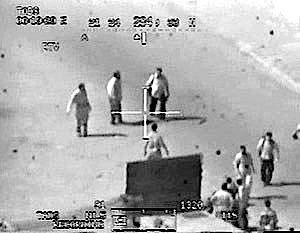 victims of the U.S. Occupation of Iraq. In his opening narration Pilger quotes World War I British Prime Minister David Lloyd George’s comment to Guardian editor C. P. Scott that, “If the people really knew the truth, the war would be stopped tomorrow.”
victims of the U.S. Occupation of Iraq. In his opening narration Pilger quotes World War I British Prime Minister David Lloyd George’s comment to Guardian editor C. P. Scott that, “If the people really knew the truth, the war would be stopped tomorrow.”
The film then provides an historic backdrop, going back to WWI and the role that Edward Bernays played in helping Woodrow Wilson sell the war to the American people. First called “public relations” the techniques have undergone steady refinement over the years until now, as Professor Melvin Goodman points out, the Pentagon spends about 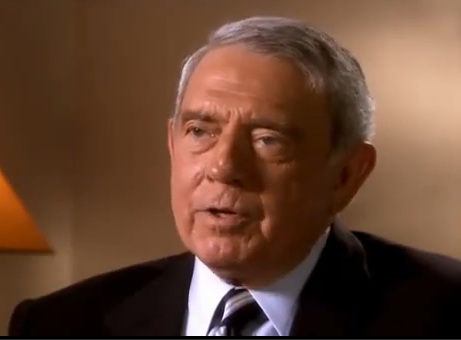 a biilion dollars a year to influence the news media. Pilger does a very thorough job of exploring all aspects of his theme and talks with an impressive array of journalists from quintessential insiders like Dan Rather to independent Dahr Jamail. Commentary ranges also from those in power, US Assistant Secretary of Defense
a biilion dollars a year to influence the news media. Pilger does a very thorough job of exploring all aspects of his theme and talks with an impressive array of journalists from quintessential insiders like Dan Rather to independent Dahr Jamail. Commentary ranges also from those in power, US Assistant Secretary of Defense Bryan Whitman, to those that analyze power from afar such as FAIR’s Steve Rendall. Other commentators include former congresswoman Cynthia McKinney, ITV News Editor in Chief David Manion, BBC Head of Newsgathering Fran Unsworth, former weapons inspector Scott Ritter, Public Interest Lawyers Phil Shiner, historian Mark Curtis, and others.
Bryan Whitman, to those that analyze power from afar such as FAIR’s Steve Rendall. Other commentators include former congresswoman Cynthia McKinney, ITV News Editor in Chief David Manion, BBC Head of Newsgathering Fran Unsworth, former weapons inspector Scott Ritter, Public Interest Lawyers Phil Shiner, historian Mark Curtis, and others.
A wide range of issues is discussed but Pilger doesn’t hesitate to allow dramatic and vivid footage to tell the story. 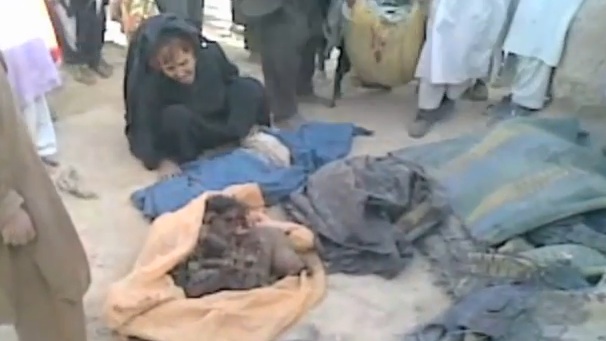 The gruesome side of war is regularly sanitized with the rationale of respecting viewers sensibilities but in perhaps the most startling segment Pilger uses the footage leaked by Wikileaks showing a U.S. Apache heliocopter wantonly firing on a group of unarmed civilians and journalists. The glee that is heard expressed by the U.S soldiers is absolutely chilling. In direct contrast we then see the emotional
The gruesome side of war is regularly sanitized with the rationale of respecting viewers sensibilities but in perhaps the most startling segment Pilger uses the footage leaked by Wikileaks showing a U.S. Apache heliocopter wantonly firing on a group of unarmed civilians and journalists. The glee that is heard expressed by the U.S soldiers is absolutely chilling. In direct contrast we then see the emotional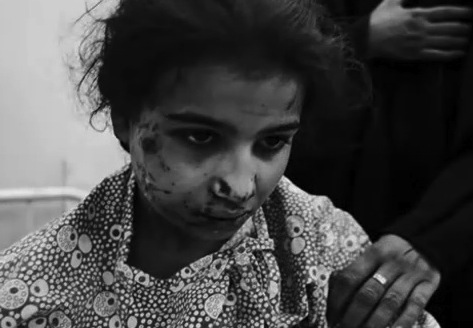 footage of former U.S. soldier Ethan McCord, who arrived on the scene minutes later, narrating his discovery of two seriously wounded children in the aftermath of the July 12, 2007 Baghdad airstrike.
footage of former U.S. soldier Ethan McCord, who arrived on the scene minutes later, narrating his discovery of two seriously wounded children in the aftermath of the July 12, 2007 Baghdad airstrike.
Comprehensive and up to date “The War You Don’t See” could well survive the test of time and become the definitive film on the subject.